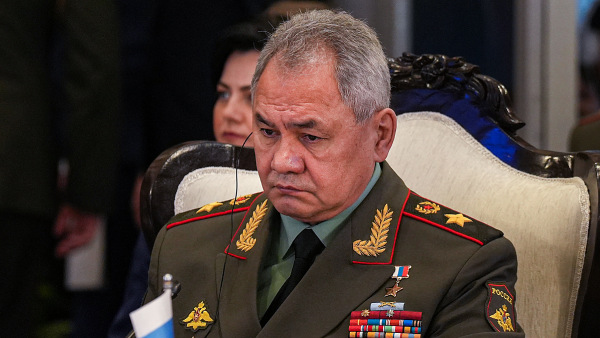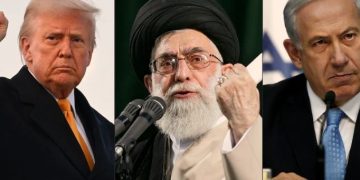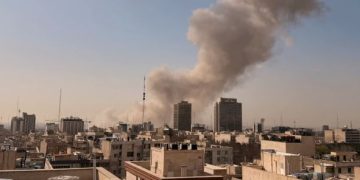Moscow: Russian Defence Minister Sergei Shoigu made his first public appearance since a mercenary uprising demanded his ouster. He was seen inspecting troops in Ukraine in a video released Monday. The video is aimed at projecting a sense of order after the country’s most serious political crisis in decades. However, uncertainty still swirled about the fate of Sergei Shoigu, that of rebellion leader Yevgeny Prigozhin and his private army, the impact on the war in Ukraine, and even the political future of President Vladimir Putin.
A feud between Wagner Group leader Prigozhin and Russia’s military brass that has festered throughout the war erupted into a mutiny that saw the mercenaries leave Ukraine to seize a military headquarters in a southern Russian city and march seemingly unopposed for hundreds of miles toward Moscow, before turning around after less than 24 hours Saturday. The Kremlin said it had made a deal that Prigozhin will move to Belarus and receive an amnesty, along with his soldiers.
There was no confirmation of Prigozhin’s whereabouts Monday, although a popular Russian news channel on Telegram reported that he had been seen at a hotel in the Belarusian capital, Minsk. Russian media reported a criminal probe against him continued, and some lawmakers called for his head.
The defence ministry video of Shoigu came as Russian media speculated that he and other military leaders have lost Putin’s confidence and could be replaced. Shoigu was shown in a helicopter and then meeting with officers at a military headquarters in Ukraine. The video was widely broadcast on Russian media, including state-controlled television. It was unclear when it was shot.
However, general staff chief General Valery Gerasimov, also a main target of Prigozhin’s ire, has not appeared in public.
It was unclear what would ultimately happen to Prigozhin and his forces under the deal purportedly brokered by Belarusian President Alexander Lukashenko. Kremlin spokesman Dmitry Peskov said Monday that Putin has given his word that Prigozhin will be allowed to go to Belarus.
The ‘RIA Novosti’ state news agency cited unidentified sources in the prosecutor general’s office as saying the criminal case against Prigozhin hasn’t been closed, despite earlier Kremlin statements. The ‘Interfax’ news agency carried a similar report. Should the case continue, Prigozhin’s presence in Belarus — a staunch Kremlin ally — would offer little protection against arrest and extradition.
Several lawmakers called for tight regulations of private military companies under a new law set to be considered — and some argued that Prigozhin must be punished.
Andrei Gurulev, a retired general and currently a lawmaker who had a rift with the mercenary leader, said Prigozhin and his right-hand man Dmitry Utkin, a former military officer who runs Wagner, deserve ‘a bullet in the head’. “I firmly believe that traitors in wartime must be executed,” he said.
Prigozhin appeared nonchalant in some of the last video taken during the rebellion. As a convoy carrying him in an SUV drove out of the southern city of Rostov-on-Don after its brief occupation Saturday, he was asked how he viewed the result of his revolt, according to footage posted on Russian social media. “It’s normal, we have cheered everyone up,” the mercenary chief responded.
Before the uprising, Prigozhin had blasted Shoigu and Gerasimov with expletive-ridden insults for months, attacking them for failing to provide his troops with enough ammunition during the fight for the Ukrainian town of Bakhmut, the war’s longest and bloodiest battle.






































